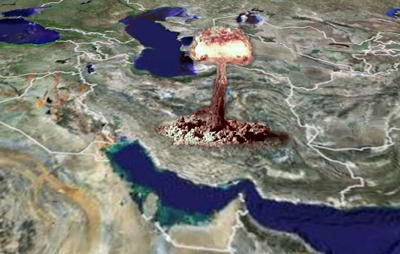
You might recall that a few days ago, I noted that non-Republican gay politicos had sent The List (of GOP gay staffers on Capitol Hill) to a host of social conservative outfits. Their aim was to set off a civil war within the Republican Party. That is, to get the religious right wing of the party in a cat-fight with the (mostly) closeted Republican gays. Reading a story in Thursday's USA Today, I was intrigued by this paragraph:
"Has the social agenda of the GOP been stalled by homosexual members or staffers?" Tony Perkins of the Family Research Council wrote in an e-mail message to the organization's activists this week. In an interview, Perkins says that while he has not drawn any conclusions, "these are questions that need to be resolved.".
Perkins was sent The List. And that's exactly the conclusion the senders wanted him to ponder. They must be pleased. A civil war may be closer. Plus, I am told that a public outing of gay Republicans is in the works.
WHO'S IN CHARGE OF AFGHANISTAN? NOBODY: That is, who's in charge of Afghanistan policy-making within the Bush administration? The answer is, no one of clout. That's the conclusion of a piece in the latest issue of The Nation--an article that happens to have been written by me. It starts:
Several months ago a leading American expert on Afghanistan was meeting with Meghan O'Sullivan, a deputy national security adviser in the Bush White House. The topic at hand was the attitude of Pervez Musharraf, the Pakistani leader, toward the revived Taliban insurgents operating out of Pakistani territory. Musharraf's government seemed (as it does now) to be willfully ignoring the Taliban, or perhaps even providing them with safe harbor and assistance. Why would Musharraf do either?
The expert explained that many factors shape the difficult Pakistani-Afghan relationship. He pointed to the decades-long conflict between Afghanistan and Pakistan and mentioned the Durand Line, the supposed border between Afghanistan and Pakistan. The 1,600-mile-long line, imposed on Afghanistan by the British in 1893, divides Pashtun and Baluch regions and separates Afghanistan from territory it has claimed as its own. Afghanistan has never officially recognized the Durand Line, which has been a great source of strife between the two countries.
By referring to the Durand Line, the expert was noting that US efforts in the region are complicated by pre-9/11 history. O'Sullivan, according to this expert (who wishes not to be named), didn't know what the Durand Line was. The expert was stunned. O'Sullivan is the most senior Bush Administration official handling Afghanistan policy. If she wasn't familiar with this basic point, US policy-making on Afghanistan was in trouble.
The article notes:
George Bush has no senior-level official responsible for policies and actions in Afghanistan. "The situation is worsening," notes former Deputy Secretary of State Richard Armitage. "We have to have someone in government responsible for the whole picture--military, economic assistance and political. There's a nexus between each. But there's not one person in the government designated to be in charge of that nexus. It could be the ambassador. It could be someone else--if they have resources and clout and accountability. But this Administration has not been keen on accountability."
Armitage also has a few choice words regarding a comment Bush made when he brought Afghan President Hamid Karzai and Musharraf to Washington for a dinner together. With the two bickering in dueling CNN interviews over the Taliban matter, Bush remarked, "It will be interesting for me to watch the body language of these two leaders to determine how tense things are." Referring to that comment, Armitage exclaimed, "I didn't believe it. This is not a high school football game."
For the whole piece, click here.
NO BIG DEAL: Here's an interesting quote from a 2003 Business Week interview with then-Secretary of State Colin Powell:
Q: And if the North Koreans test nuclear arms?
A: If they test we'll take note of their test. The only reason they are testing is to scare the international community. The President has already accepted the possibility that they might test. And we will say “Gee, that was interesting.” The 50-year history of dealing with this regime is that they are marvelous in terms of threats, in terms of rhetoric and actions. Well they might take an action, but this time they would be sticking their finger not just in the eye of the United States, but I think Kim Jong Il will have to think twice about whether he would do such a thing in light of Chinese involvement.
COULD BE A BIG DEAL: I asked former weapons inspector David Kay what would be a smart and not-so-obvious talking point regarding North Korea's apparent nuclear weapons test. He wrote back (with permission to quote):
1. The Bush Admin's policy of maximizing the pain/punishment of the DPRK [North Korea] is the policy most likely to: A. lead to the collapse of NK; B. result in the use of a nuke against ROK [South Korea] and Japan as NK collapses; C. result in the transfer of a weapon/nuke materials to UBL [Usama bin Laden] as all control of NK's WMD disappears in the chaos of collapse.
2. If we have this much trouble determining if NK really conducted a nuke test how much trouble would we have identifying who really set off a nuke in an American city.
Good points. Damn scary points. But good ones.
Posted by David Corn at October 13, 2006 10:41 AM